Tech
Microsoft didn't win the PC turf war. Sony never showed up. – PCWorld
This week, Kotaku reported that PlayStation 4 exclusive Horizon: Zero Dawn may come to the PC in the near future. And let me first say, it’s interesting this became big news because when Quantic Dream announced that Detroit: Become Human was coming to PC last year—another Sony-published game—it didn’t inspire nearly the same levels of pontificating about Sony’s intentions for the PC.
Of course, people generally praised Horizon: Zero Dawn and disliked Detroit. Maybe that’s the only difference, that Horizon is seen as one of Sony’s “prestige” games.
It does have me thinking about the PC though, and specifically about the PC as an arm of Microsoft—because that’s what it’s become to some people. The PC is seen as an extension of the Xbox platform, or perhaps the Xbox is an extension of the PC. Hell, I even wrote that the Xbox Series X “sure does resemble a PC tower” when Microsoft teased it at December’s Game Awards.
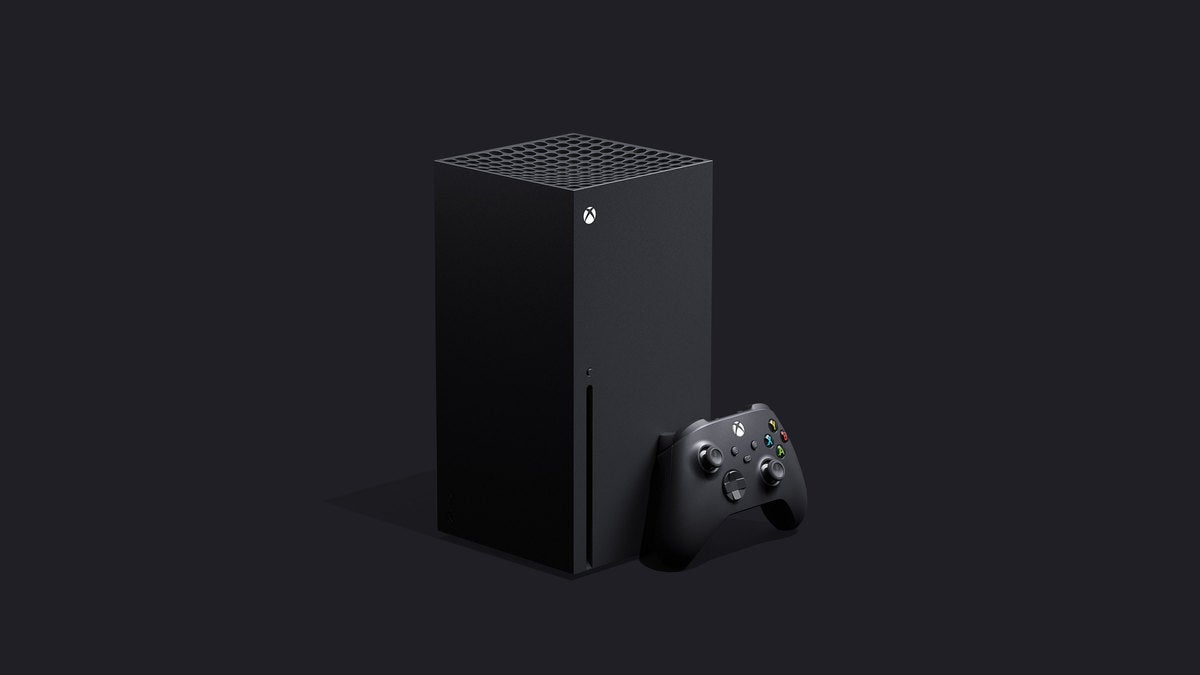 Microsoft
MicrosoftAnd it’s fascinating how times have changed. Only a little over a decade ago, Games for Windows Live seemed like a colossal overreach. Microsoft’s first attempt to wed PC and Xbox manifested as a buggy launcher with buggy authorization and buggy multiplayer functionality and it sucked. It wreaked havoc on the PC, and continues to do damage even today. Just this month Rockstar pulled Grand Theft Auto IV from Steam, citing a lack of Games for Windows Live keys as the reason.
With that failure, Microsoft pseudo-abandoned the PC again—or at least, that’s what PC gamers claimed. Really this period of benevolent neglect was the start of the PC’s resurgence. Windows 7 kicked ass. Valve built an empire. The average PC’s performance pulled way ahead of console hardware, and that status quo held even upon the release of the Xbox One and PlayStation 4 in 2013.
A bigger audience meant more money, which meant developers started returning to the PC, the ports got better, and the PC began feeling like digital Switzerland. It was neutral territory, or ostensibly neutral. 2014 and 2015 were the heyday of the “Console Exclusive,” games that were either coming to the Xbox One or the PS4—but which were definitely coming to PC as well.
That’s how we started this console generation.
 Grim Fandango Remastered
Grim Fandango RemasteredGrim Fandango Remastered is still on PC and PS4 but not Xbox—even though Microsoft now owns Double Fine. Console exclusives! Wild!
The situation’s changed though. Maybe five years ago now, Microsoft started quietly integrating the PC and Xbox again. The process has not always been smooth, nor subtle. The all-but-forced move from Windows 7 to Windows 10 proved controversial. The early years of the Windows 10 store even more so.
Valve tried to secede from Windows entirely, dreaming of a Linux-based future with SteamOS and Steam Machines. Epic’s Tim Sweeney penned a letter for The Guardian decrying the UWP format, calling it a “distribution and commerce monopoly.”
This was just four years ago .
And listen, I’m not going to act like the PC and Xbox are the same platform now. They’re not, and ideally never will be. But Microsoft’s done quite a bit with the PC in the last five years.
- Windows 10: Windows 10 has proven, if not as beloved as Windows 7, at least a decent follow-up.
- Xbox Game Bar: I still think it’s bizarre how much Xbox-branded software is on my PC, but the Xbox Game Bar’s various overhauls have made it one of the best ways to snag in-game screenshots and video clips, especially if you don’t use an Nvidia card.
- New controller: Since 2016, Xbox controllers have included Bluetooth so you don’t need to buy a specialized dongle anymore.
- Xbox Play Anywhere: Every Xbox first-party exclusive has been “Xbox Play Anywhere” since 2016, meaning you buy it once and own it across both the Windows 10 Store and the Xbox. Save progress also syncs between systems.
- Xbox Game Pass: As of last year, Microsoft brought its Game Pass subscription to the PC. Confusingly titled “Xbox Game Pass for PC,” it nevertheless is a separate subscription with a different lineup of games—but it’s easily the best subscription value on PC at $5 a month, and brought the PC up to parity with the Xbox’s services.
- The prodigal son returns: Then in late 2019, the walls came tumbling down. Microsoft started putting its games on Steam again, after years trying to force people into the Windows 10 store. The irony? The Windows 10 store might be a better deal at this point. Sure, you can buy the games on Steam—or you can pay $5 a month and get them through Game Pass. Why force the change and needlessly anger people if you can entice them with a better deal, yeah?
Again, not every move Microsoft’s made has been successful. Enough of them have though, and the result is that in 2020 the PC feels firmly like “Microsoft Territory” again. Thus when Sony wants to bring a game like Horizon: Zero Dawn to the PC it’s seen as a Big Statement.
And that’s disappointing, because it simply didn’t have to be this way. Microsoft does make Windows—that’s not in dispute. Perhaps this was always the most obvious outcome, given Microsoft can entrench the Xbox name at the OS level. Sony will always be an outsider of sorts.
 IDG / Hayden Dingman
IDG / Hayden DingmanThe Xbox Console Companion, one of many Xbox-branded programs in Windows 10.
I still get occasional activity on a tweet from five years ago though. With the specter of Games for Windows Live looming overhead, Microsoft announced Xbox Live would be built into Windows 10 at the system level. I, like many others, reacted with alarm. Would we have to pay? What fresh hell was this? And Xbox’s Larry Hyrb, otherwise known as Major Nelson, replied with “Not charging. Xbox Live Gold will not be required for online multiplayer gaming using our service on Windows 10 PCs and Phones.”
[Side note: Remember Windows Phones?]
And it wasn’t. Xbox Live support on PC is barely noticeable, especially outside the Windows Store. I bring this up though mainly to illustrate that people didn’t want Microsoft and/or Xbox meddling with PC gaming. The PC was proudly independent, even from its parent.
Nowadays Microsoft’s presence is seen as largely a net positive though, and it’s no wonder some have started to view the PC as an Xbox fiefdom. Still, I’d argue it’s equally the result of Sony’s inattention as Microsoft’s generosity.
There was a period between 2010 and 2015 when developers were slowly remembering the PC existed again after a decade spent pretending otherwise. EA, Ubisoft, Bethesda, Capcom, Square, Activision—they all began putting more money into their PC ports, catering to the PC with dedicated servers and 4K texture packs. I began spotting PCs at trade shows more often, both on-stage and in behind-closed-doors demos.
 Bloodborne
BloodborneReally I’m just mad Bloodborne never came to PC.
Sony simply never showed up. The DualShock 4, a fantastic controller that’s sported Bluetooth since day one, only “mostly” works with the PC. You can’t play Uncharted 4 on PC, or Bloodborne, or God of War, or Until Dawn. And I’m not going to say that was a bad choice for Sony. It undoubtedly sold hardware. I own a PlayStation 4 Pro that I’ve played…maybe six games on. Pretty much the ones I just listed, plus Horizon: Zero Dawn.
I won’t turn Sony away, either. I think every game should come to PC, and if this is the start of Sony’s big push? Great. I’d love to go into the PlayStation 5 era neutral again.
Bottom line
It feels like perhaps it’s too late though, that even Sony has come to the conclusion the PC is Microsoft’s domain. We’ll get the one-offs, the ports that are either too old or too niche to matter much. And why not? Microsoft is all about services, about the Xbox platform, and it’s built that belief and brand into major parts of modern PC gaming. If God of War were to come to PC now, it would feel a bit like a capitulation, even if Microsoft doesn’t benefit monetarily.
If Sony had come to the PC with everyone else, I don’t think it would feel so weird. I don’t think we’d see people weighing in on Sony’s plans for the PC as a platform, because back in 2013 and 2014 it was still surprising to get a competent PC port of any game, publisher be damned. “Wow, a fully-functioning port of the Tomb Raider reboot? And they even did work to make the hair look better on PC? I can’t believe it.”
Under those circumstances, a God of War port would’ve only seemed as far-fetched as Halo on PC. And yet in 2020, I can load up Halo: Reach through Steam. Who would’ve guessed, right? It’s a shame Sony ceded the battle without ever mounting an offensive. Here’s hoping the Horizon: Zero Dawn rumors prove true.
Tech
How to Preorder the PlayStation 5 Pro in Canada
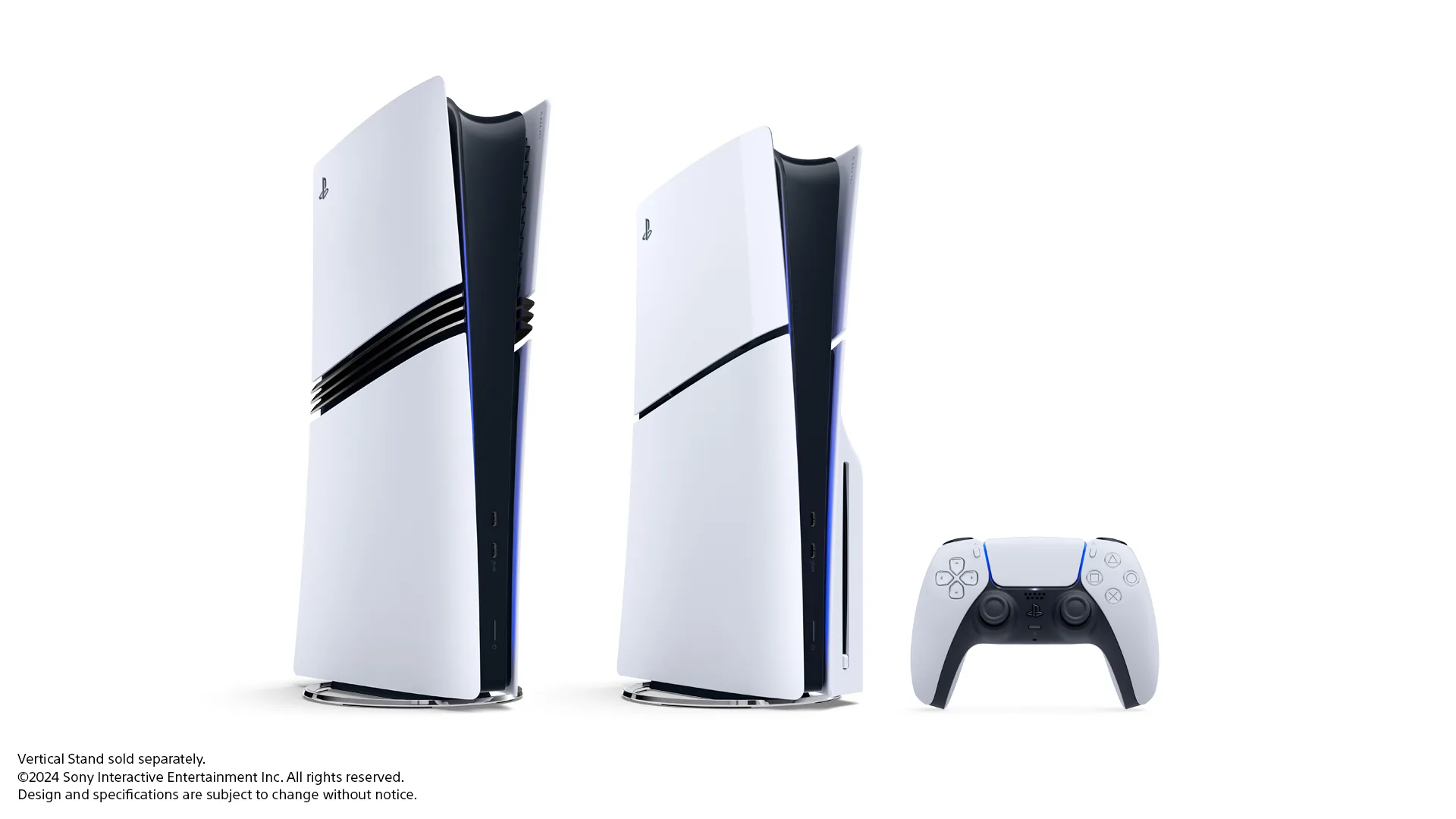
Sony has made it easy for Canadian consumers to preorder the PlayStation 5 Pro in Canada directly from PlayStation’s official website. Here’s how:
- Visit the Official Website: Go to direct.playstation.com and navigate to the PS5 Pro section once preorders go live on September 26, 2024.
- Create or Log in to Your PlayStation Account: If you don’t have a PlayStation account, you will need to create one. Existing users can simply log in to proceed.
- Place Your Preorder: Once logged in, follow the instructions to preorder your PS5 Pro. Ensure you have a valid payment method ready and double-check your shipping information for accuracy.
Preorder Through Major Canadian Retailers
While preordering directly from PlayStation is a popular option, you can also secure your PS5 Pro through trusted Canadian retailers. These retailers are expected to offer preorders on or after September 26:
- Best Buy Canada
- Walmart Canada
- EB Games (GameStop)
- Amazon Canada
- The Source
Steps to Preorder via Canadian Retailers:
- Visit Retailer Websites: Search for “PlayStation 5 Pro” on the website of your preferred retailer starting on September 26.
- Create or Log in to Your Account: If you’re shopping online, having an account with the retailer can speed up the preorder process.
- Preorder in Store: For those who prefer in-person shopping, check with local stores regarding availability and preorder policies.
3. Sign Up for Notifications
Many retailers and websites offer the option to sign up for notifications when the preorder goes live. If you’re worried about missing out due to high demand, this can be a useful option.
- Visit Retailer Sites: Look for a “Notify Me” or “Email Alerts” option and enter your email to stay informed.
- Use PlayStation Alerts: Sign up for notifications directly through Sony to be one of the first to know when preorders are available.
4. Prepare for High Demand
Preordering the PS5 Pro is expected to be competitive, with high demand likely to result in quick sellouts, just as with the initial release of the original PS5. To maximize your chances of securing a preorder:
- Act Quickly: Be prepared to place your order as soon as preorders open. Timing is key, as stock can run out within minutes.
- Double-Check Payment Information: Ensure your credit card or payment method is ready to go. Any delays during the checkout process could result in losing your spot.
- Stay Informed: Monitor PlayStation and retailer websites for updates on restocks or additional preorder windows.
Final Thoughts
The PlayStation 5 Pro is set to take gaming to the next level with its enhanced performance, graphics, and new features. Canadian gamers should be ready to act fast when preorders open on September 26, 2024, to secure their console ahead of the holiday season. Whether you choose to preorder through PlayStation’s official website or your preferred retailer, following the steps outlined above will help ensure a smooth and successful preorder experience.
For more details on the PS5 Pro and to preorder, visit direct.playstation.com or stay tuned to updates from major Canadian retailers.
Tech
Introducing the PlayStation 5 Pro: The Next Evolution in Gaming
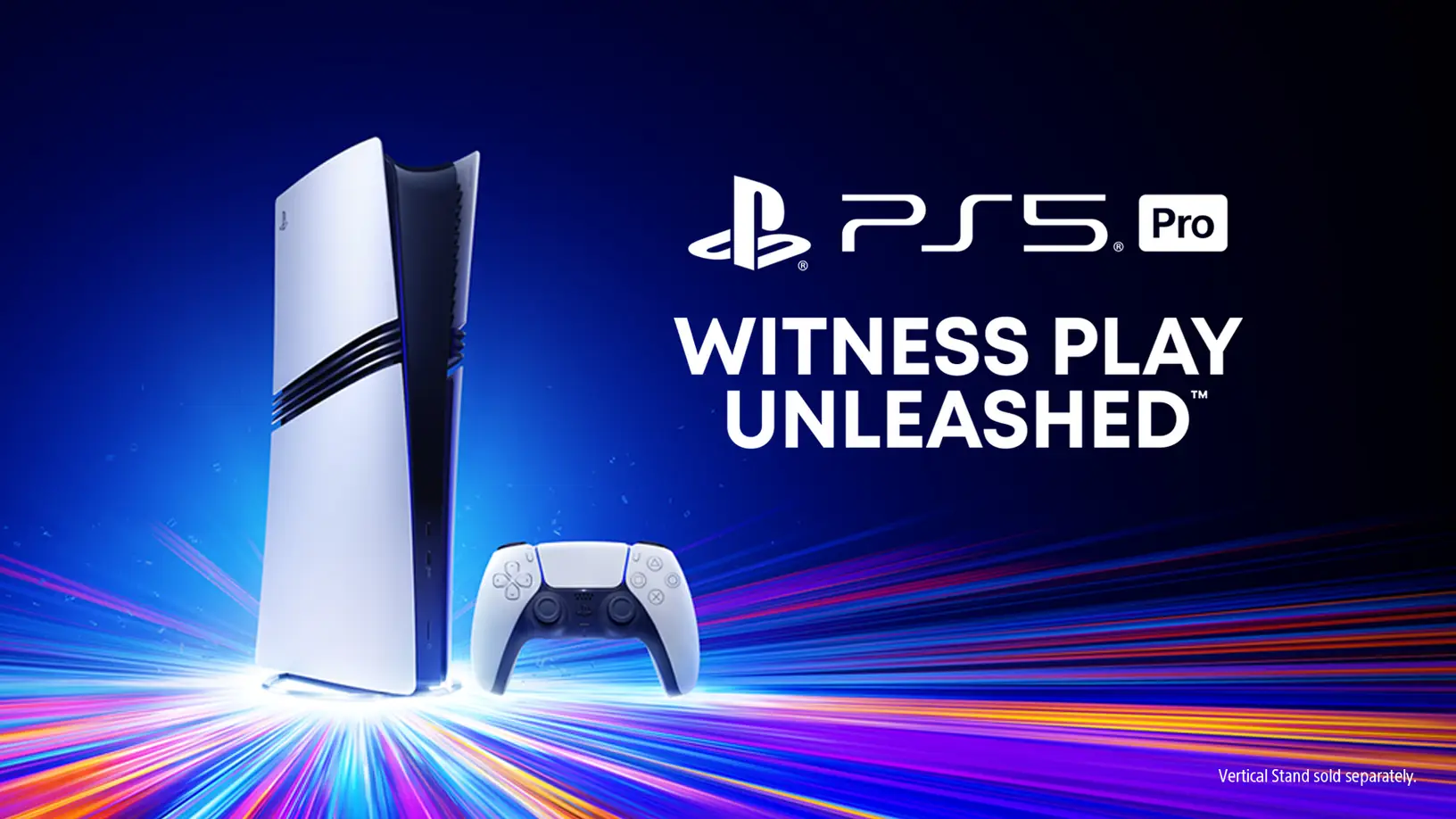
Since the PlayStation 5 (PS5) launched four years ago, PlayStation has continuously evolved to meet the demands of its players. Today, we are excited to announce the next step in this journey: the PlayStation 5 Pro. Designed for the most dedicated players and game creators, the PS5 Pro brings groundbreaking advancements in gaming hardware, raising the bar for what’s possible.
Key Features of the PS5 Pro
The PS5 Pro comes equipped with several key performance enhancements, addressing the requests of gamers for smoother, higher-quality graphics at a consistent 60 frames per second (FPS). The console’s standout features include:
- Upgraded GPU: The PS5 Pro’s GPU boasts 67% more Compute Units than the current PS5, combined with 28% faster memory. This allows for up to 45% faster rendering speeds, ensuring a smoother gaming experience.
- Advanced Ray Tracing: Ray tracing capabilities have been significantly enhanced, with reflections and refractions of light being processed at double or triple the speed of the current PS5, creating more dynamic visuals.
- AI-Driven Upscaling: Introducing PlayStation Spectral Super Resolution, an AI-based upscaling technology that adds extraordinary detail to images, resulting in sharper image clarity.
- Backward Compatibility & Game Boost: More than 8,500 PS4 games playable on PS5 Pro will benefit from PS5 Pro Game Boost, stabilizing or enhancing performance. PS4 games will also see improved resolution on select titles.
- VRR & 8K Support: The PS5 Pro supports Variable Refresh Rate (VRR) and 8K gaming for the ultimate visual experience, while also launching with the latest wireless technology, Wi-Fi 7, in supported regions.
Optimized Games & Patches
Game creators have quickly embraced the new technology that comes with the PS5 Pro. Many games will receive free updates to take full advantage of the console’s new features, labeled as PS5 Pro Enhanced. Some of the highly anticipated titles include:
- Alan Wake 2
- Assassin’s Creed: Shadows
- Demon’s Souls
- Dragon’s Dogma 2
- Final Fantasy 7 Rebirth
- Gran Turismo 7
- Marvel’s Spider-Man 2
- Ratchet & Clank: Rift Apart
- Horizon Forbidden West
These updates will allow players to experience their favorite games at a higher fidelity, taking full advantage of the console’s improved graphics and performance.
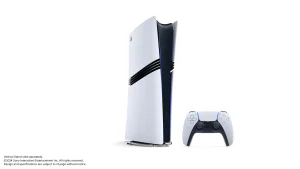
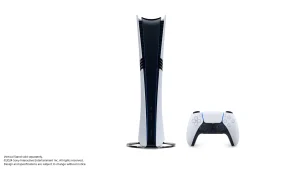
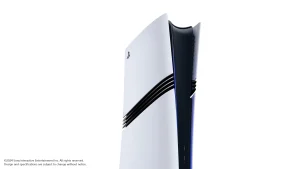
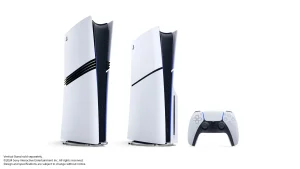
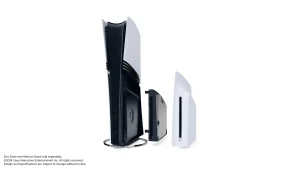
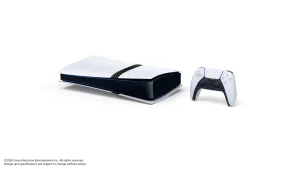
Design & Compatibility
Maintaining consistency within the PS5 family, the PS5 Pro retains the same height and width as the original PS5 model. Players will also have the option to add an Ultra HD Blu-ray Disc Drive or swap console covers when available.
Additionally, the PS5 Pro is fully compatible with all existing PS5 accessories, including the PlayStation VR2, DualSense Edge, Pulse Elite, and Access controller. This ensures seamless integration into your current gaming setup.
Pricing & Availability
The PS5 Pro will be available starting November 7, 2024, at a manufacturer’s suggested retail price (MSRP) of:
- $699.99 USD
- $949.99 CAD
- £699.99 GBP
- €799.99 EUR
- ¥119,980 JPY
Each PS5 Pro comes with a 2TB SSD, a DualSense wireless controller, and a copy of Astro’s Playroom pre-installed. Pre-orders begin on September 26, 2024, and the console will be available at participating retailers and directly from PlayStation via direct.playstation.com.
The launch of the PS5 Pro marks a new chapter in PlayStation’s commitment to delivering cutting-edge gaming experiences. Whether players choose the standard PS5 or the PS5 Pro, PlayStation aims to provide the best possible gaming experience for everyone.
Preorder your PS5 Pro and step into the next generation of gaming this holiday season.
Tech
Google Unveils AI-Powered Pixel 9 Lineup Ahead of Apple’s iPhone 16 Release
Google has launched its next generation of Pixel phones, setting the stage for a head-to-head competition with Apple as both tech giants aim to integrate more advanced artificial intelligence (AI) features into their flagship devices. The unveiling took place near Google’s Mountain View headquarters, marking an early debut for the Pixel 9 lineup, which is designed to showcase the latest advancements in AI technology.
The Pixel 9 series, although a minor player in global smartphone sales, is a crucial platform for Google to demonstrate the cutting-edge capabilities of its Android operating system. With AI at the core of its strategy, Google is positioning the Pixel 9 phones as vessels for the transformative potential of AI, a trend that is expected to revolutionize the way people interact with technology.
Rick Osterloh, Google’s senior vice president overseeing the Pixel phones, emphasized the company’s commitment to AI, stating, “We are obsessed with the idea that AI can make life easier and more productive for people.” This echoes the narrative Apple is likely to push when it unveils its iPhone 16, which is also expected to feature advanced AI capabilities.
The Pixel 9 lineup will be the first to fully integrate Google’s Gemini AI technology, designed to enhance user experience through more natural, conversational interactions. The Gemini assistant, which features 10 different human-like voices, can perform a wide array of tasks, particularly if users allow access to their emails and documents.
In an on-stage demonstration, the Gemini assistant showcased its ability to generate creative ideas and even analyze images, although it did experience some hiccups when asked to identify a concert poster for singer Sabrina Carpenter.
To support these AI-driven features, Google has equipped the Pixel 9 with a special chip that enables many AI processes to be handled directly on the device. This not only improves performance but also enhances user privacy and security by reducing the need to send data to remote servers.
Google’s aggressive push into AI with the Pixel 9 comes as Apple prepares to unveil its iPhone 16, which is expected to feature its own AI advancements. However, Google’s decision to offer a one-year free subscription to its advanced Gemini Assistant, valued at $240, may pressure Apple to reconsider any plans to charge for its AI services.
The standard Pixel 9 will be priced at $800, a $100 increase from last year, while the Pixel 9 Pro will range between $1,000 and $1,100, depending on the model. Google also announced the next iteration of its foldable Pixel phone, priced at $1,800.
In addition to the new Pixel phones, Google also revealed updates to its Pixel Watch and wireless earbuds, directly challenging Apple’s dominance in the wearable tech market. These products, like the Pixel 9, are designed to integrate seamlessly with Google’s AI-driven ecosystem.
Google’s event took place against the backdrop of a significant legal challenge, with a judge recently ruling that its search engine constitutes an illegal monopoly. This ruling could lead to further court proceedings that may force Google to make significant changes to its business practices, potentially impacting its Android software or other key components of its $2 trillion empire.
Despite these legal hurdles, Google is pressing forward with its vision of an AI-powered future, using its latest devices to showcase what it believes will be the next big leap in technology. As the battle for AI supremacy heats up, consumers can expect both Google and Apple to push the boundaries of what their devices can do, making the choice between them more compelling than ever.
-

 Sports24 hours ago
Sports24 hours agoCanada’s Stakusic, partner Savinykh lose in doubles quarterfinals at Guadalajara Open
-

 News4 hours ago
News4 hours agoRCMP say 3 dead, suspects at large in targeted attack at home in Lloydminster, Sask.
-

 News4 hours ago
News4 hours agoNova Scotia adopts bill declaring domestic violence in the province an epidemic
-

 News14 hours ago
News14 hours agoCanadanewsmedia news September 12, 2024: Air Canada pilot strike looms, BC transit strike talks resume
-

 News3 hours ago
News3 hours agoHall of Famer Joe Schmidt, who helped Detroit Lions win 2 NFL titles, dies at 92
-
News13 hours ago
Local Toronto business story – Events Industry : new national brand, Element Event Solutions
-

 News3 hours ago
News3 hours agoB.C. to scrap consumer carbon tax if federal government drops legal requirement: Eby
-

 News14 hours ago
News14 hours agoReggie Bush was at his LA-area home when 3 male suspects attempted to break in



















